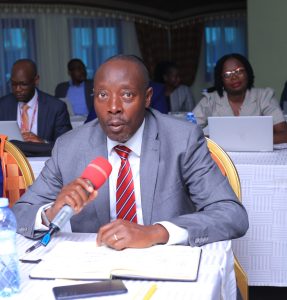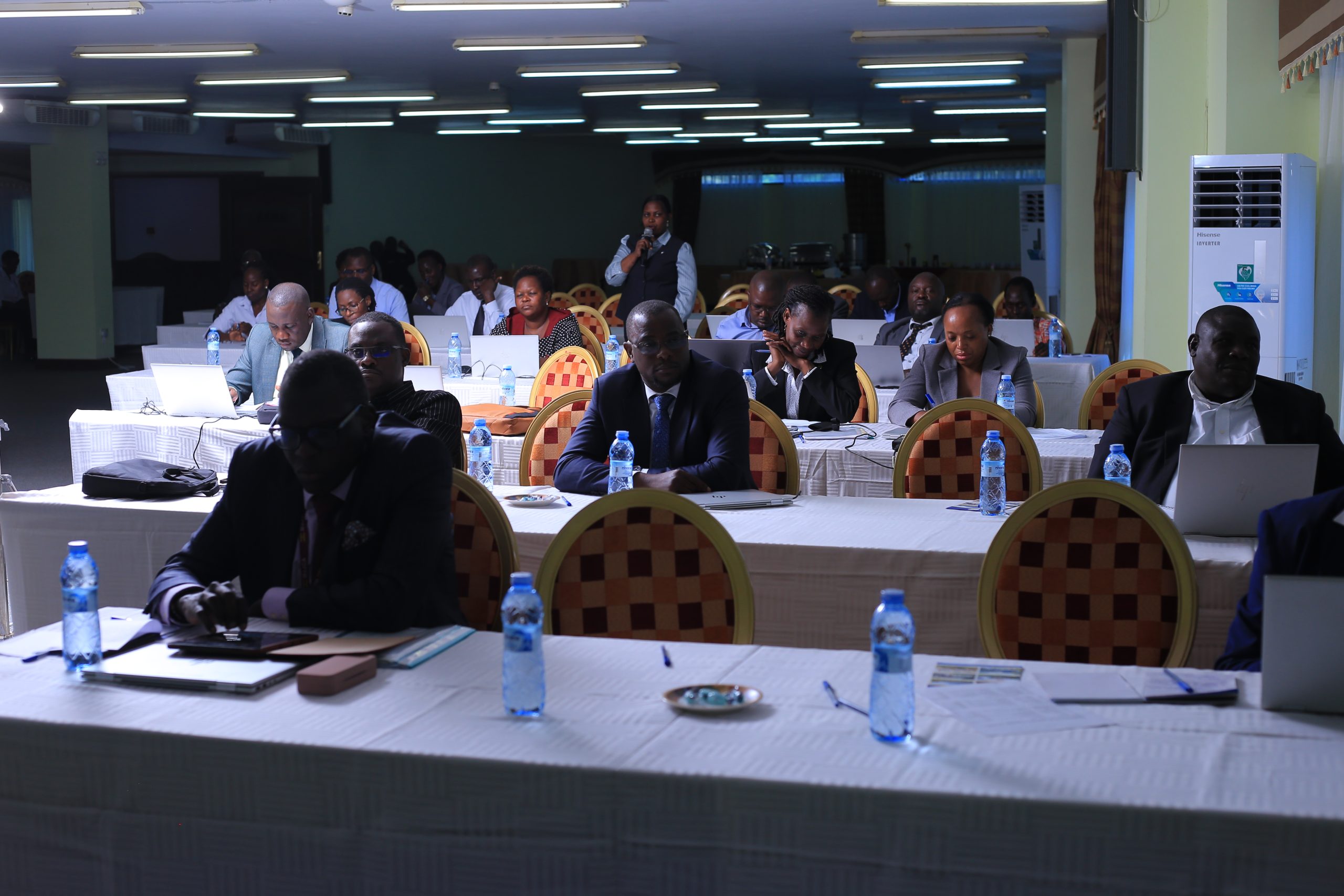Tuesday, 21st October, 2025. The Ministry of Justice and Constitutional Affairs officially opened a high-level Budget Framework Paper (BFP) Preparation Workshop for the Financial Year 2026/27 at the Imperial Resort Beach Hotel in Entebbe. The workshop has brought together heads of departments, regional representatives, and planning officers to chart a path for the Ministry’s priorities and resource allocations in alignment with national development goals.
While opening the conference, Mr. Kasande Robert, the Permanent Secretary of the Ministry, emphasized the significance of the budget cycle in the broader context of Uganda’s strategic development agenda. He welcomed all participants and congratulated newly appointed acting heads of the recently created departments and regional offices.

Permanent Secretary
Mr. Kasande noted that the Ministry’s staff structure was officially revised in June 2025, ushering in nine new departments and seven regional offices, including Fort Portal and Soroti as part of a major institutional transformation. These changes aim to enhance legal service delivery across the country.
“This is the first budget to be developed under our revised structure. We must ensure our resource allocations support the Government’s broader agenda while remaining committed to our core mandate of delivering justice, upholding the rule of law, and ensuring access to legal services for all Ugandans,” the Permanent Secretary stated.
He further revealed that the Ministry’s preliminary resource envelope for FY2026/27 has been projected at UGX 122.033 billion, a reduction from UGX 202.159 billion in FY2025/26. He cautioned against the misuse of funds observed in certain expenditure lines during the current financial year and called for efficient, results-driven planning aligned with the Ministry’s Strategic Plan (2025/26–2029/30).
Representing the Solicitor General, Deputy Solicitor General Mr. Charles Ouma delivered remarks that underscored the critical link between institutional structure, performance standards, and budget allocations.
“This engagement marks a critical step in our planning and budgeting cycle as we realign our Ministry’s priorities to the newly approved institutional structure and the Service Delivery Standards,” he said.

Deputy Solicitor General
Mr. Ouma stressed that the FY2026/27 BFP must reflect high-impact priorities, ensure fiscal discipline, and demonstrate a clear link between structure, budget, and measurable service outcomes, in line with the Budget Call Circular issued by the Ministry of Finance, Planning and Economic Development (MoFPED).
He further outlined key service delivery standards adopted by the Ministry, such as processing legal opinions within 14 days, responding to statutory notices within 45 days, and issuing Certificates of No Objection within 14 days. He called on all departments to cost and integrate these standards into their plans, reinforcing a citizen-focused, accountable public service.

Under Secretary
Also addressing the workshop, Mr. Emmanuel F. Mugunga highlighted the critical need to adequately equip and fund the newly established regional offices.
“We must ensure that regional offices are well-furnished with both financial and logistical support. Only then can we effectively extend legal services to the grassroots level,” he said.
Mr. Mugunga also urged the BFP technical team to align their plans with the ruling party’s manifesto, emphasizing that development and service delivery must reflect the political and social contract between government and citizens.
The Ministry has set an internal deadline ahead of the 14th November 2025 national submission date to finalize and submit its draft BFP and preliminary budget estimates. These will be consolidated under the Governance and Security Program Secretariat before submission to MoFPED.
As Uganda progresses under the theme for FY2026/27, “Full Monetization of Uganda’s Economy through Commercial Agriculture, Industrialization, Expanding and Broadening ServCices, Digital Transformation, and Market Access”, the Ministry of Justice has committed to remaining a pillar of good governance, rule of law, and institutional excellence.


